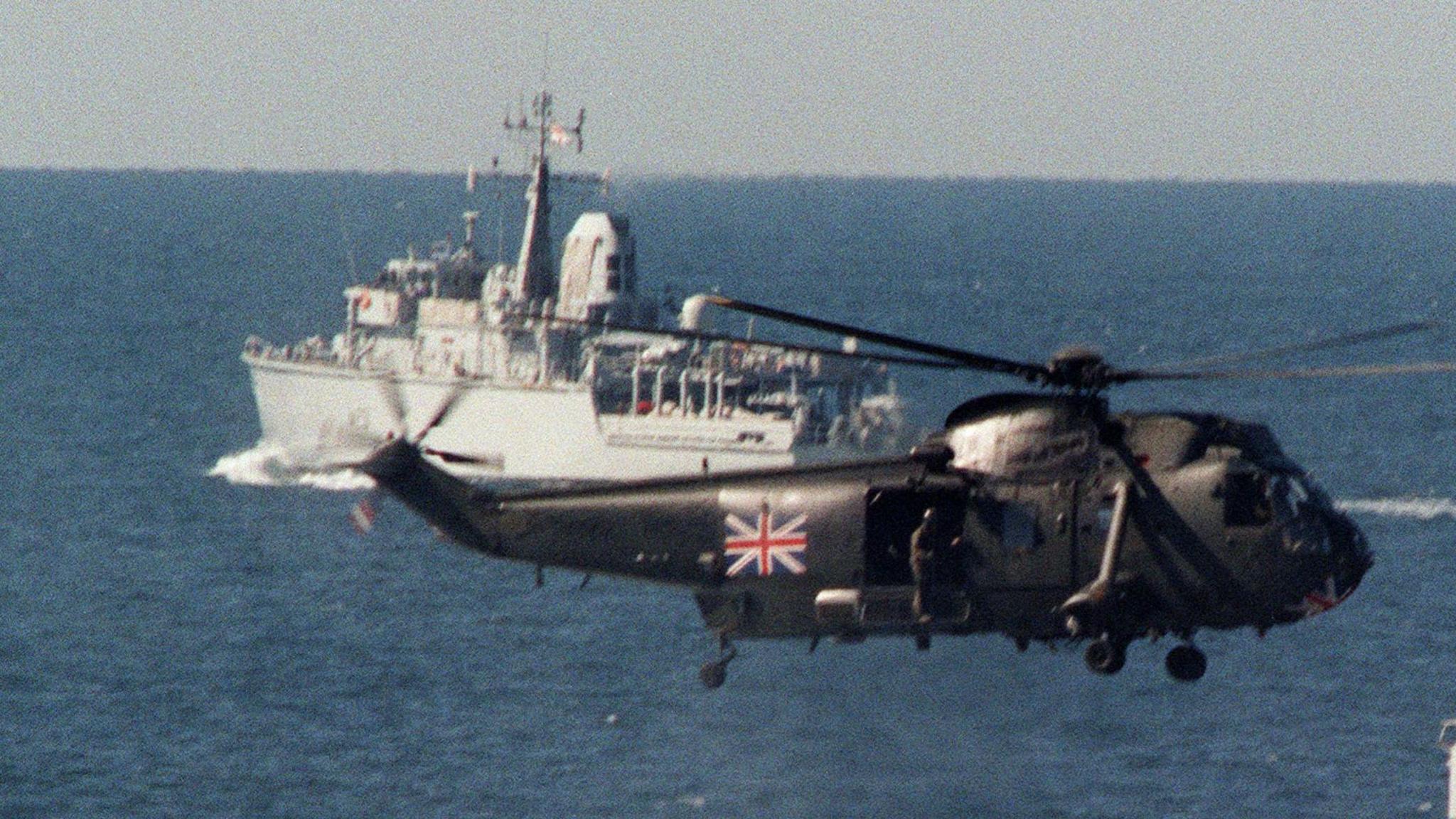Helicopter pilot's widow 'utterly betrayed' by MoD
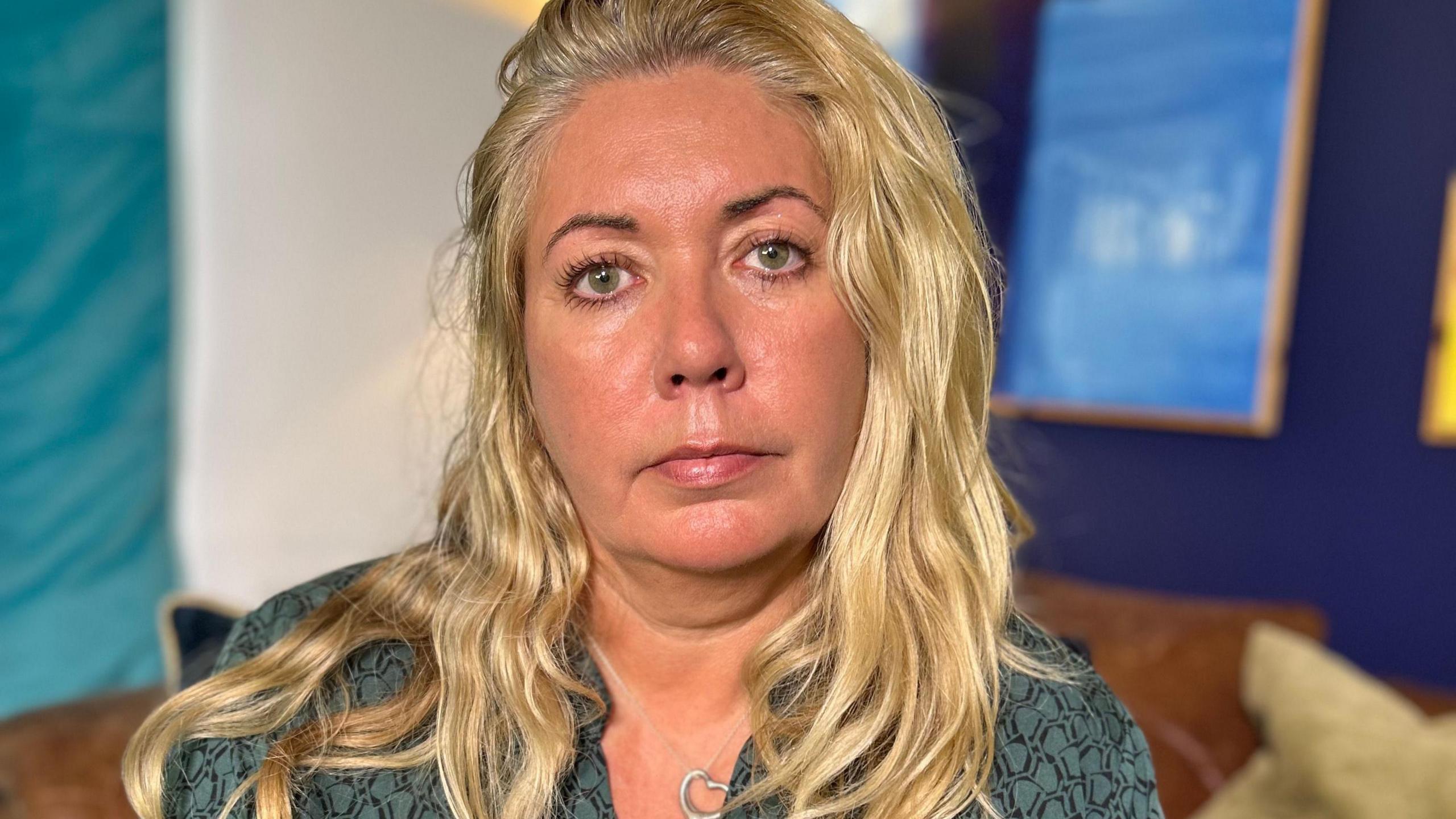
Clare Macnaughton's husband Kai died of a rare cancer in March 2023
- Published
The widow of a helicopter pilot who died from a rare type of cancer has said their family feel "utterly betrayed" by the military.
Sqn Ldr Kai Macnaughton, 53, from Warminster in Wiltshire, died "very rapidly" last March, just three weeks after being diagnosed with a type of blood vessel cancer.
His widow, Clare, said the serving pilot's final weeks were "absolutely horrific". She is one of more than 40 people believed to be taking legal action against the government, with lawyers claiming toxic fumes were circulated in helicopter cabins.
The Ministry of Defence (MoD) said former personnel can apply for compensation if they believe their ill health is a result of their time in the military.
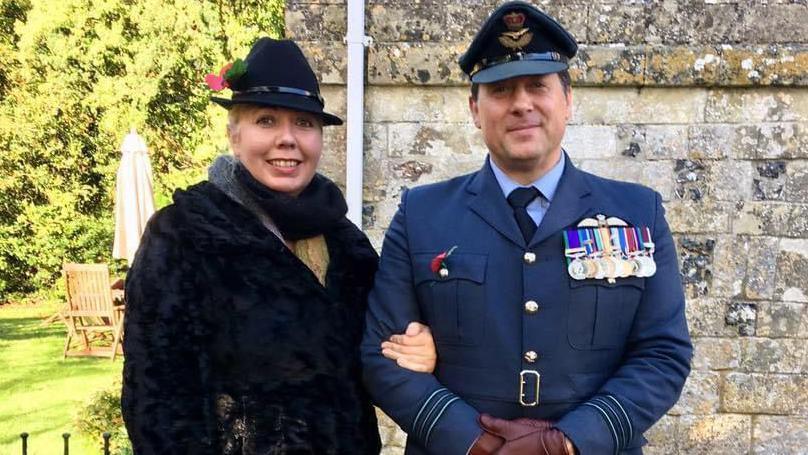
Mrs Macnaughton said the family feels "utterly betrayed", following her husband's death
Mrs Macnaughton said her husband's stage four cancer diagnosis in February 2023 "came out of nowhere", and it took doctors a couple of weeks to recognise it as angiosarcoma.
"None of us could understand what was happening," she said.
"He couldn't understand what was happening and he didn't want to die.
"It was an incredibly traumatic and horrific time for everybody, including my kids who were watching this giant of a man just dissolve."
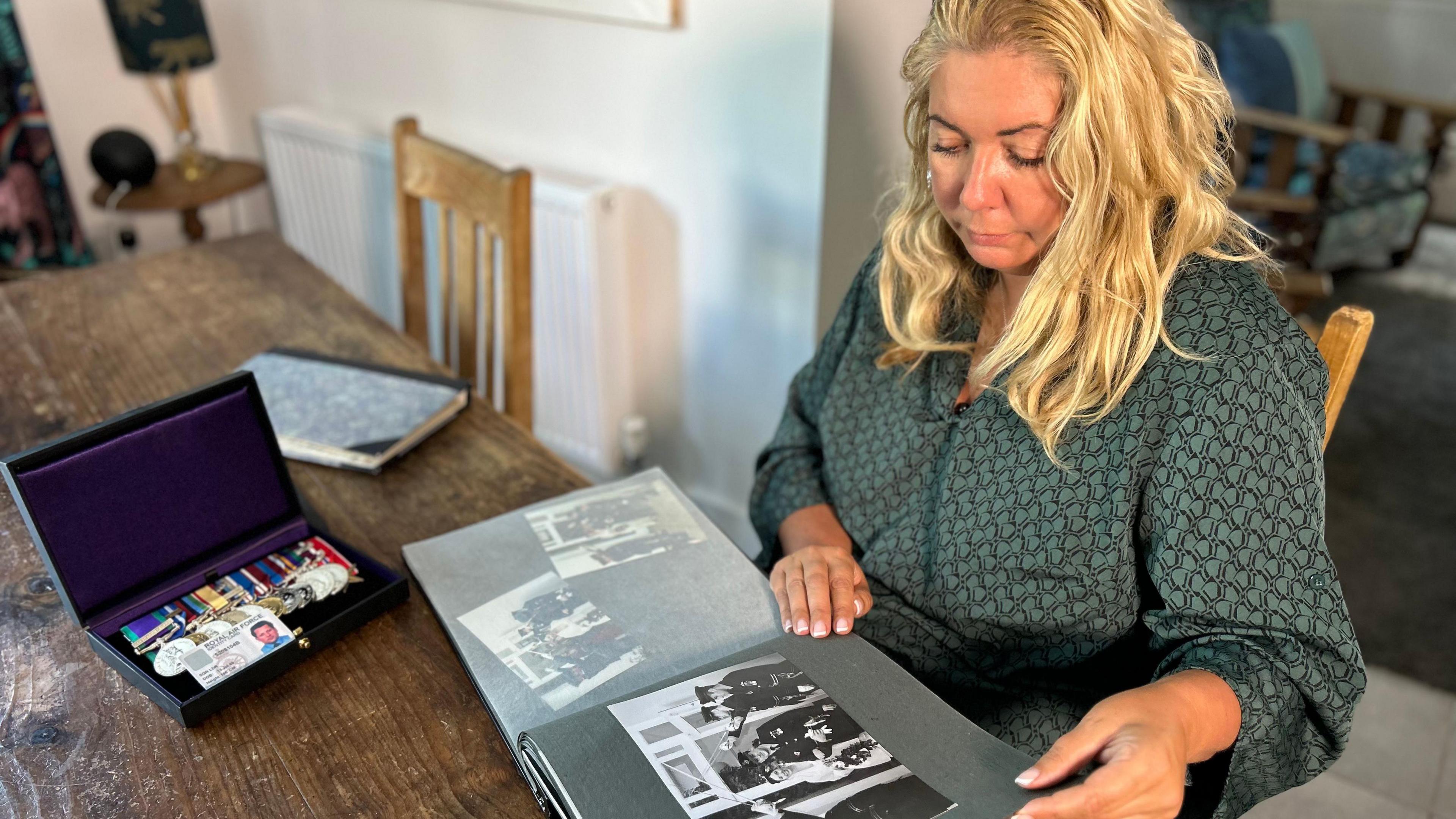
Ms Macnaughton said her husband's final weeks were "absolutely horrific"
She said the family has been left feeling "utterly betrayed".
"They were so proud of Kai. They expected the RAF to look after him and they feel utterly bereft," she said.
Sqn Ldr Macnaughton spent 30 years serving with the RAF and during his time, flew thousands of hours in Puma helicopters as a navigator and later worked as a pilot in Chinook helicopters. He was still serving at the time of his death.
Lawyers now claim that toxic fumes were circulated in helicopter cabins and then ingested by crews, like Sqn Ldr Macnaughton.
The fact that serving and former pilots and aircrew are taking legal action against the MoD was first reported by The Times, external in May.
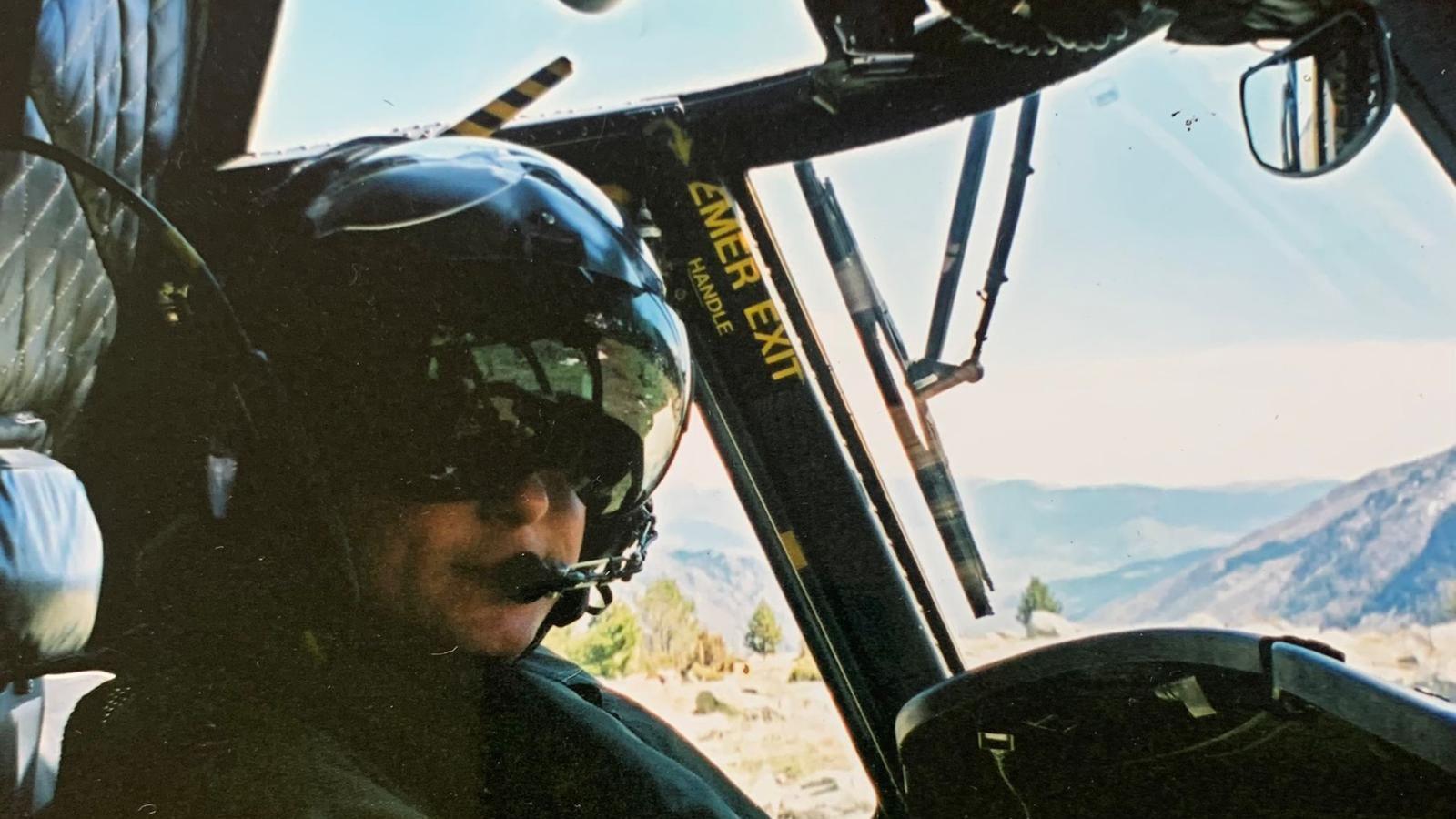
Sqn Ldr Kai Macnaughton joined the Royal Air Force in 1993
Angiosarcoma is a rare type of cancer which can start almost anywhere inside the soft tissue of the body, including muscles, fat, ligaments, tendons and blood vessels, according to the NHS.
It can develop hereditarily, after exposure to radiation, and following occupational exposure to carcinogens.
Mrs Macnaughton concluded that it was "very likely" that his condition was caused as a result of exposure to "something in his service life."

Barrister Jonathan Dingle is representing some of the claimants
Jonathan Dingle, a barrister from the Taunton-based law firm, Normanton Chambers, told the BBC that they believe fumes coming out of some helicopters - including the Wessex and Sea King - contained benzine carcinogens, which can cause cancer.
He said that people who had worked on these helicopters had come forward with different types of cancer.
"These recirculated through the body of the helicopters causing - we believe - cancers to grow in all sorts of parts of the body of these aircrew that wouldn't be there at the age you'd expect," he said.
"People in their late 30s or early 40s were coming forward with all sorts of devastating cancers - some lost their lives."
He added that they now also have people coming forward who worked on the Puma - like Sqn Ldr Macnaughton.
'Spurs me on'
Since her husband's death, Mrs Macnaughton has submitted a claim to the armed forces compensation scheme. She has also started a civil claim.
She said that, in the future, she wants to see greater awareness of the risks, so RAF personnel can make an informed choice about whether to continue their work.
She also wants personal protective equipment offered to servicemen and women, in a bid to "mitigate exposure" to harmful fumes and a "well thought out" compensation scheme for all the families affected.
"I feel some strength in being able to do something about it - that sort of spurs me on," Mrs Macnaughton added.
"I think Kai would want me to try and prevent other people from dying so quickly."
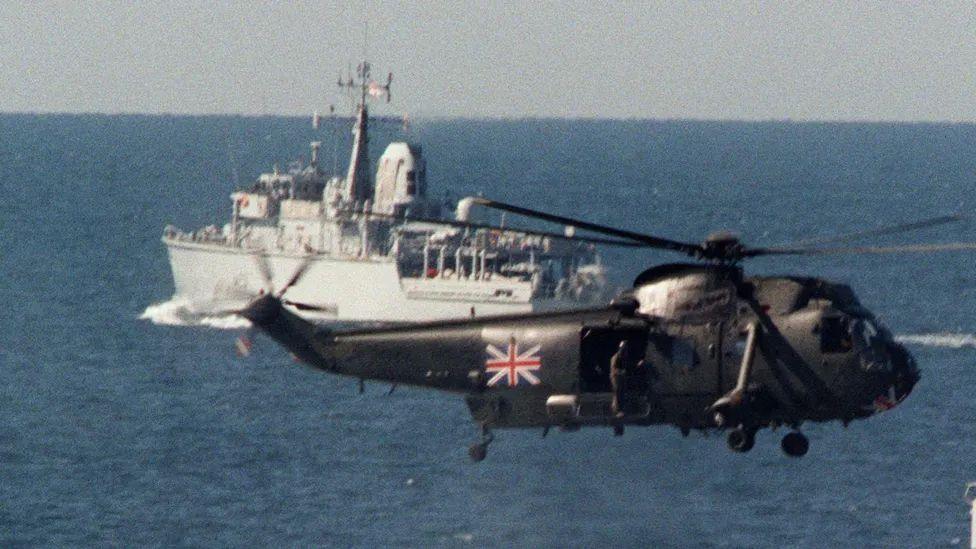
Personnel who flew in helicopters such as the Sea King are taking legal action
A spokesperson from the MoD said: "We hugely value our service personnel and veterans and owe a debt of gratitude to all those who serve, often with great personal sacrifice.
"We continually review our policies to ensure they are aligned with good practice and protect our people from harm.
"Service personnel and veterans who believe they have suffered ill health due to service from 6 April 2005 have the existing and long standing right to apply for no-fault compensation under the Armed Forces Compensation Scheme."
The MoD added it is aware of four prior claims, all of which were settled on a no-fault basis.
Follow BBC Wiltshire on Facebook, external, X, external and Instagram, external. Send your story ideas to us on email or via WhatsApp on 0800 313 4630.
Related topics
- Published31 May 2024
